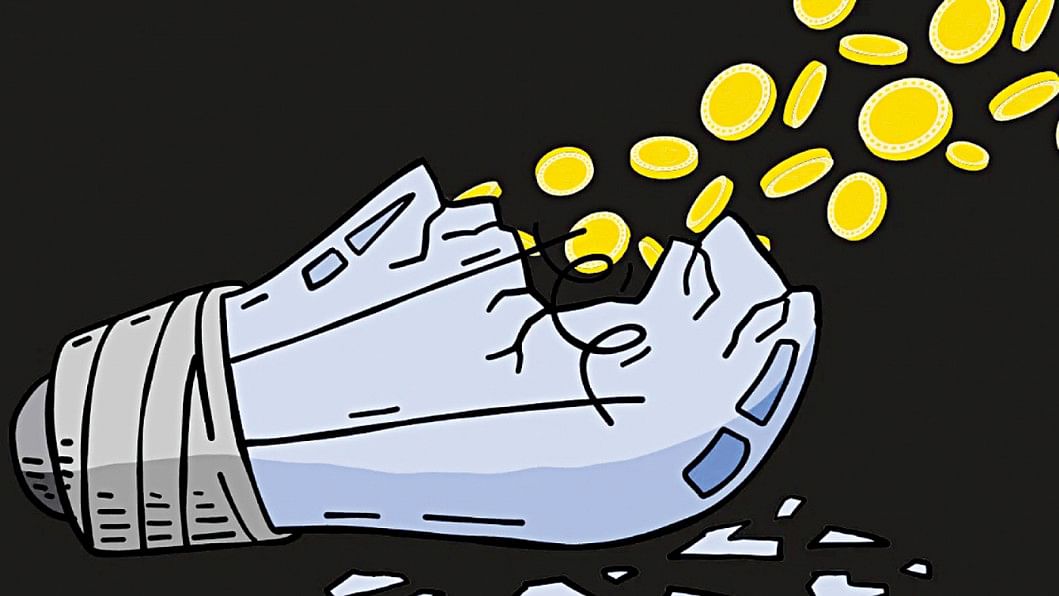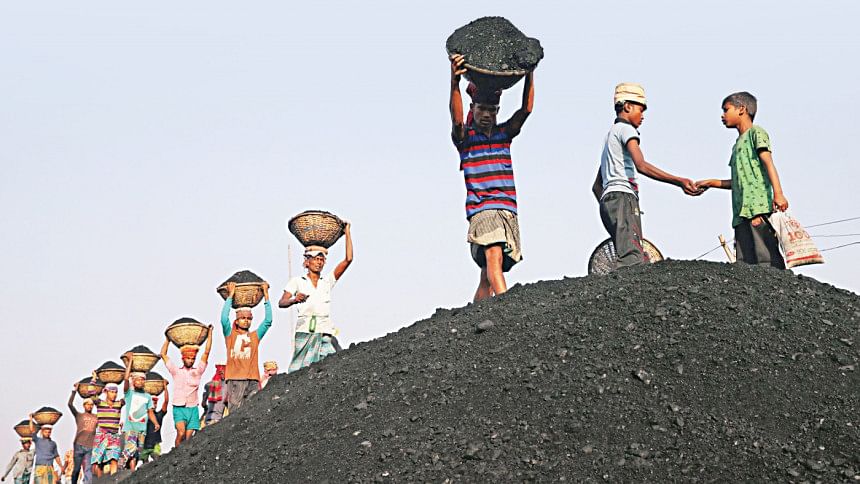Surviving the energy crisis

Energy crises are not rare, but a crisis of this magnitude that tends to derail world economic progress is. One reason why the ongoing energy crisis is particularly concerning and may be long drawn is that it is the result of two major world events. Recent data on international oil and LNG prices make it clear that the effects of the Russia-Ukraine war on them is over. What is prolonging the crisis is the supply chain disruptions that resulted from the post-Covid global economic recovery. Moreover, what turn China's economy takes following its opening up and recovery will significantly influence the crisis.
The global energy crisis has hit Bangladesh hard. The main reason behind this, of course, is that we are overly dependent on imported energy (oil, gas, and coal). Our dependence on oil is an old problem and there were times when the economy was under stress because oil prices had gone up – such as during the Gulf War crisis of the early eighties. Coal import did not impact the economy much because coal was imported from India by the private sector for brick kilns. The new element of our energy dependency is natural gas in the form of LNG. The LNG price effect – as a result of the post-Covid supply chain disruptions and Russia-Ukraine war – has pushed many developing nations to the brink.
The many reasons why we are in this situation have been widely articulated, but not much has been said about how we can survive this crisis. Due to our wrong decisions, we have placed ourselves in a bad situation from which it is difficult to see any easy way out. To survive this crisis, we need to dig deeper into our failures and slowly rectify the errors we have committed. However, as an immediate measure, we must use less. There is no alternative. We must tighten our belts and practice extreme energy conservation. Along with that, we must try to be as energy efficient as possible.
With regards to electricity production, we must ensure that all the coal fired power plants in the pipeline are implemented on time and also that the nuclear power plant is not delayed further (we have been notified of a one-year delay). In terms of substantive long-term actions, we must immediately start vigorous gas exploration and urgently set up 2,000-3,000 MW of utility scale solar PV and wind power plants. All these will probably restore health to the power sector, but what about the other sectors?
The industrial sector is in dire straits. Industrialists are crying out for relief, but the government is not paying much heed to their distress. For industries to survive they need gas. But where will more gas come from? Of course, they have to conserve and use efficient machines, but such measures can only do so much. One solution is that in the short run, gas supply to power plants and fertiliser plants can be reduced and diverted to industries. This strategy is feasible because as more and more coal-based power plants enter the generation mix, the natural gas power plants can be relieved; and by importing fertiliser, the production in our fertiliser plants can be reduced to conserve gas. Both these measures are short term because keeping natural gas power plants idle may turn out to be costly because of capacity payments; and reducing fertiliser production for too long will have other domestic consequences.

Even though the prognosis for the price and supply of LNG is good in the long run, overdependence on a single imported fuel endangers energy security. To manage the energy crisis, industries must also take some responsibility and try to: (i) slowly wean themselves out of captive generation and come to the grid; and (ii) look for alternative fuels. This, of course, puts the burden on Bangladesh Power Development Board (BPDB) to ensure reliable electricity supply at least to those industries that give up captive generation. The reliance of industries on cheap gas must end because gas will no longer be cheap since it is being replaced by imported LNG.
In an article in oilprice.com titled, "High LNG Prices Have Sparked Demand Destruction in India," Tsvetana Paraskova quotes Lucy Cullen, principal analyst, APAC Gas & LNG Research at WoodMac, as saying in September that, "India has reduced LNG usage by 30-40 percent year-on-year in refineries and petrochemical plants. Large-scale industries have replaced LNG with domestic gas, produced in India's eastern offshore. And other small industries are switching to fuel oil and liquefied petroleum gas (LPG) for heating." India and China saw the largest reductions in LNG consumption as consumers switch to coal and fuel oil in power and non-power sectors, Cullen noted. We must learn from China and India.
One of the biggest follies that Bangladesh has committed is to not realise the true value of natural gas. That natural gas is a valuable resource has never been appreciated. As a result, we were wasteful in its use. We indiscriminately opened up new sectors to consume gas, and the most troubling aspect of our indifference is that we gave it away at very low prices. The fact that the true value of a depleting resource was not taken into account implies that many customers got used to enjoying this valuable commodity at a very low price.
Industries in Bangladesh have been the biggest beneficiary of the low gas price. The tremendous success of the garments and textile sector has been due to cheap labour and cheap energy. The cheap energy era is over. Industries must transition out of cheap gas. Since that cannot be done overnight, the government needs to do some hand holding for three to five years. It is vital for our export-oriented industries to be kept afloat at any cost.
To keep gas supply at a level where export-oriented industries can continue their production unabated, gas supply to this sector must be prioritised. Before that, gas loss due to pilferage and theft which goes by the name of "Unaccounted for Gas (UFG)" must be stopped. If this can be achieved in a short time, then the adjustments mentioned above and a small amount of LNG purchase from the Spot Market can solve the problem. However, from the nature of Petrobangla's management, we know that this will be a slow and uncertain process. The other significant intervention can be to slowly shift CNG vehicles and domestic gas users to LPG.
At this time, the fuel that is the cause of the biggest concern is coal. One would think that the world moving away from coal would mean a price collapse. However, the reverse has happened as a result of LNG supply disruption and price escalation; the price of coal has skyrocketed as countries scramble to buy coal. Even Germany, which had abandoned coal, is opening up new mines. As a result of the Paris Agreement, many coal mines had been closed down. The price of coal has increased more than three times and has gone from below USD 100/Ton to over USD 300/Ton. While the prices of oil and LNG have moderated, the price of coal remains elevated.
According to most international experts and consulting groups, the prognosis for energy prices is good. Platts has predicted the spot price of LNG will go below USD 10/MCF in 2026. If prices eventually come down to that level, Bangladesh will comfortably be able to buy LNG. Therefore, Bangladesh will have to manage the energy crisis for the next one to three years. The year 2023 will be the greatest challenge.

 For all latest news, follow The Daily Star's Google News channel.
For all latest news, follow The Daily Star's Google News channel. 



Comments